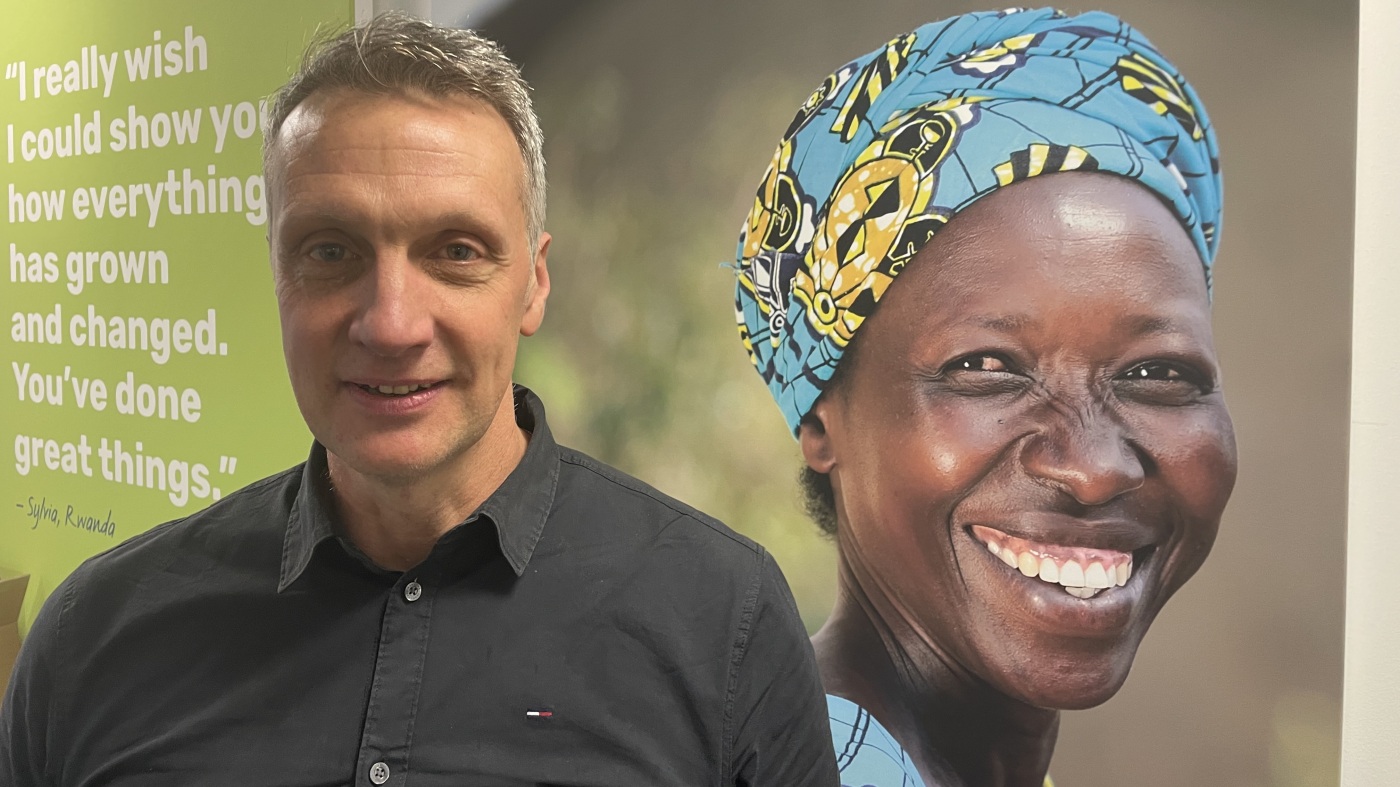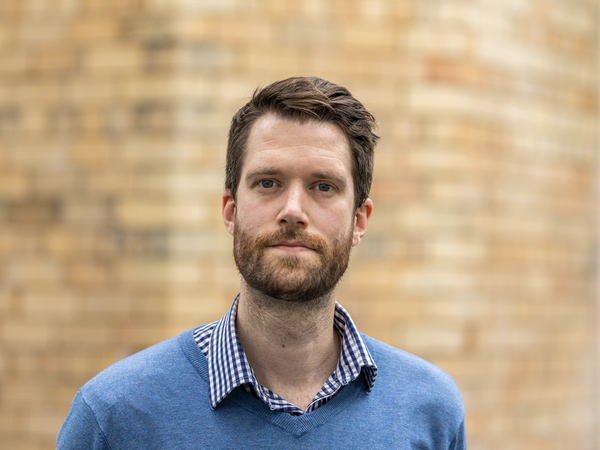Malawi’s farmers were very clear to me about scale of acute hunger
29 May 2024

SCIAF Programme Officer Chris MacLullich, reflects on his recent trip to Malawi.
On the final approach to Lilongwe, looking past the aeroplane’s wing, the landscape is a patchwork of vibrant shades of green. It’s rainy season in Malawi, and small plots of maize separated by paths, long dirt roads, and clusters of small houses extend as far as the eye can see.
It looks like the smallholder farmers I see in the fields will be looking forward to a good harvest. But as we get closer, I see that the maize crop is looking thin and stunted. Many of the plants haven’t developed the characteristic green corn cob which contains the kernels that are used for Malawi’s staple food – ‘nsima’.
I lived in Malawi for three years with my family and one of our children, Angela, was born here, which gives me a strong connection to this country and its wonderful, resilient people.
The following day in a village, farmers told me they planted their seeds in October, but the rains came late, the seedlings died, and they had to plant again in December. At first, the crops grew, but then they were hit by a prolonged dry spell in February. The maize either withered on the stalks or failed to thrive.
We met with a family who, having nothing else to eat, had resorted to harvesting grass seeds that they grind to make porridge. After gathering the seeds, the family have to carefully sort the grains to remove other seeds that can be harmful. There was a great dignity in the way these farmers explained their situation in these increasingly stark circumstances.
The tropical cyclones of 2022 and 2023 brought extremely strong winds and torrential rain which flattened crops, flooded farmland, killed livestock, and washed away entire villages. More than 700,000 people were displaced as six months’ worth of rain fell in just six days. Many lives were lost to the storms, and hunger followed as there were few crops to harvest.
This year, El Niño has triggered drought across Malawi. Whilst most of the country has experienced a dry spell in the last few months, other parts have been hit by raging floods. This back-to-back and completely unpredictable climate chaos has been devastating, with more than four million Malawians currently facing hunger. For the millions who rely on rainfed agriculture, the future is looking bleak.
The extent and scale of acute hunger in Malawi in 2024 is shocking.
SCIAF’s response is firstly to meet the immediate needs of the most vulnerable, and then to support people to be more resilient and diversify their sources of income. With the support of the Scottish Government, SCIAF and our partner Cadecom (Caritas Malawi) have distributed unconditional cash assistance of £250,000 amongst 4,250 of the most vulnerable families.
Cadecom, as part of the Catholic Church, has a permanent presence and engagement with communities in every part of Malawi and is recognised as one of the country’s most effective humanitarian actors. It’s able to respond swiftly and with unmatched local knowledge, particularly in relation to the most vulnerable, including children, older people and those living with disabilities.
But there is hope among the farmers participating in SCIAF climate-smart sustainable agriculture projects. Rather than relying entirely on maize, they’re growing a wide variety of crops and using agroecological practices to get better yields and to protect their crops from droughts. They’re using solar irrigation to extend their growing season to most of the months of the year. They’re planting trees to protect riverbanks and to reduce flash flooding and have formed Village Savings and Loans associations to save money for the lean season and to invest in small businesses.
At SCIAF our mission is to build a world free from poverty and hunger. Alongside providing farmers and their families with lasting solutions, we also campaign and lobby governments across the world to bring in the policies that can make a massive difference now and into the future. By doing this, we can help unlock the changes that make sure one day this world can be free of poverty and injustice.
In one of the meetings in a village in Malawi, the village headman spoke movingly about the ‘Caritas’ family, that is, a family in which people who support SCIAF in Scotland make their sense of solidarity a reality through projects that give hope and make a lasting difference.

Fr Gabriel Romanelli, Parish Priest of the Catholic Church in Gaza, visited Glasgow to raise awareness of the plight of his parishioners.

SCIAF Emergencies Officer, Jonathan, reflects on feeling powerless in a world full of tragedies.

Ben Wilson, SCIAF Director of Public Engagement, writes for Open House on our Lenten and Emergencies Appeals.